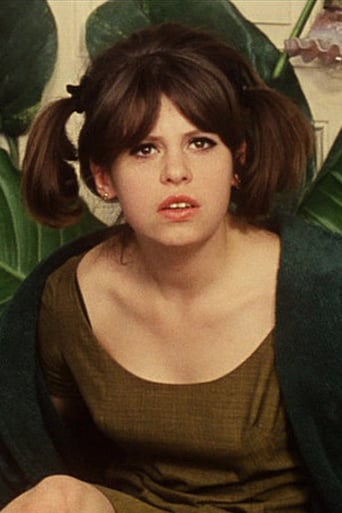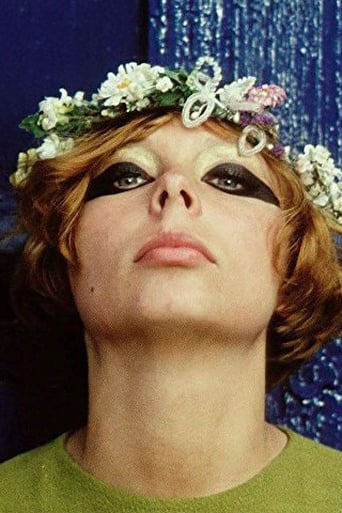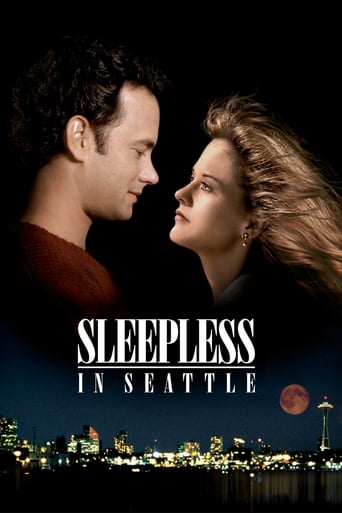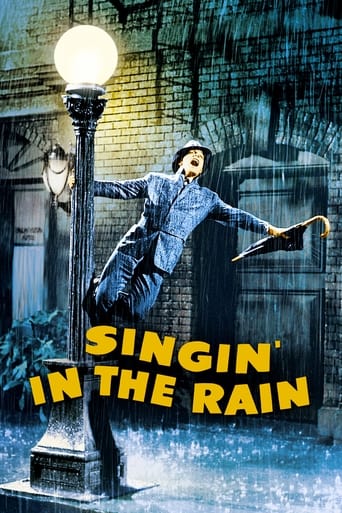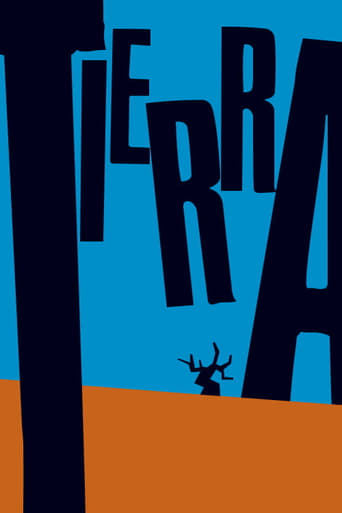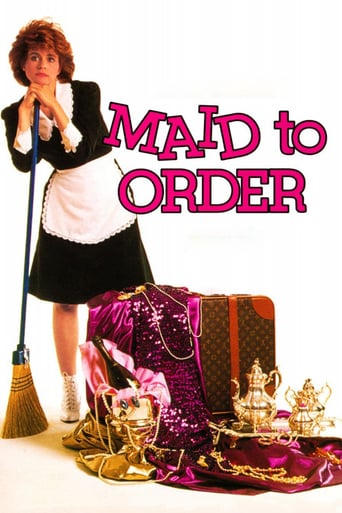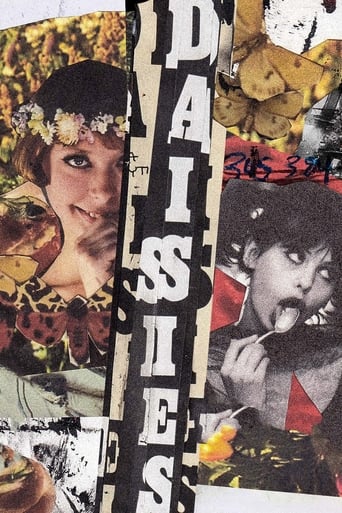
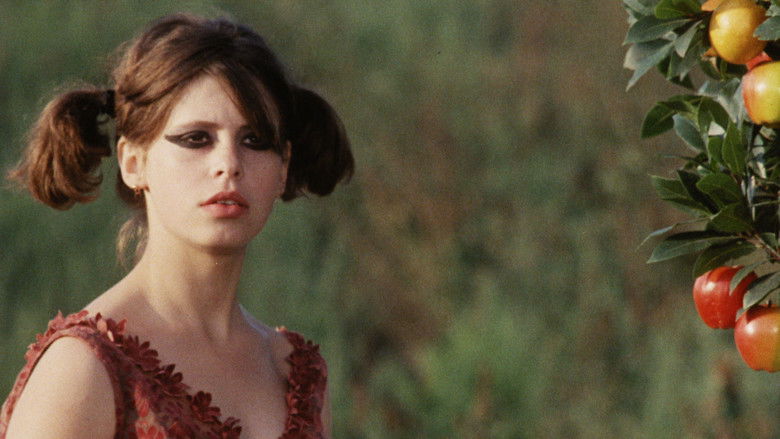
Daisies (2022)
Two teenage girls embark on a series of destructive pranks in which they consume and destroy the world around them.
Watch Trailer
Cast
Similar titles
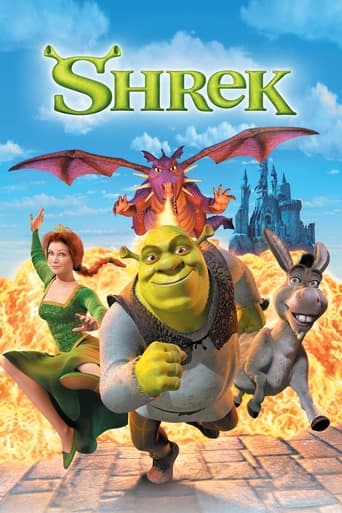
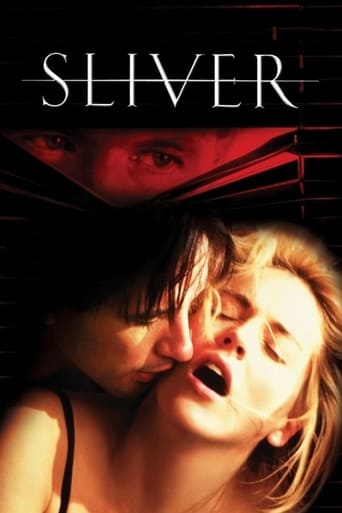
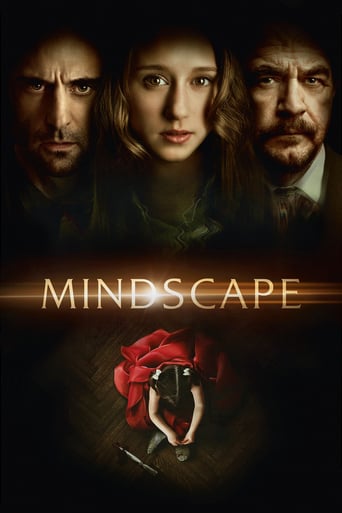
Reviews
Why so much hype?
Redundant and unnecessary.
Brilliant and touching
A terrific literary drama and character piece that shows how the process of creating art can be seen differently by those doing it and those looking at it from the outside.
I was told by some film friends a few weeks back when asking about some good surrealist films (not by Bunuel or Lynch) to check out the 1966 Czech flick Daisies, a film that's been out for a while thanks to Criterion. The cover itself looked promising, and probably something I've passed more than once when in the video store: bright colors, a cute girl, hey, why not? This movie is... certainly something else. But what exactly, I am not totally sure.Perhaps the film had a script - the film's director is also co-writer, experimental filmmaker Vera Chytilova - but damn if I can tell from the look of this. A lot of Daisies seems to be shot and performed on the fly, as though Chytilova were yelling out things to do on the spot for her girls (and this is not uncommon on sets where the truly unusual is taking place). I wasn't sure at first what their names even were, but apparently Ivana Karbanova and Jitka Cerhová both play characters named Marie (that is, Marie #1 and Marie #2). And their characters are... how can one distinguish them apart? They're both consumption machines - of food, of themselves, their self-indulgence as they talk and laugh in their bedroom, or talk and laugh and "do" things out in the real world.The closest that we get to see anything outside of just pure Id from these gals is when one of them feels down after some guy on a farm doesn't notice them. The other thinks it's stupid to worry about it, but the other can't let go... until the NEXT thing comes around! But really, there are surreal touches here, really out-there things that caught me off-guard, and not just the sudden color changes of the film stock (which is fantastic), but those moments where the director really lets things get wild. At one point the girls get a pair of scissors and chop off parts of their limbs. Don't worry, no blood, it's just their severed heads and limbs doing wacky things, and then the film becomes bits and pieces of paper jangled together.There is a lot of experimental direction going on here, and I know it's surely for a purpose of some kind. In later years, Chytilova said the movie was a "morality play" about unabashed greed. That's fine. But it's such a strange sit because the film IS certainly satirical, and yet the two characters barely have anyone else to bounce off of; there are maybe one or two very brief scenes where older people (maybe their parents) appear while they're eating or acting their goofy-dippy-WTF selves, and at one point a boy calls on the telephone as they... cut up sausage and eggs and banana and almost cut off their toes and... yeah.It sounds crazy, but I wish the movie were MORE surreal in a sense. There is still a kind of grounded reality that these girls are in, and despite the attempts to make things deliberately madcap - sound effects of a typewriter not there making it into a musical number, the cracking sounds at the start when the girls first appear and move like, yes, dolls - I also felt like the director was trying to get me, on some level, to see these as real people... sorta.Okay, maybe not. But the point is this: if it's really more of a super-cartoonish satire of two laughing harpies who have no real direction and are symbols of something, then there needs to be more 'there' there around them (it could have gone longer, if there were more characters around them, but even at 73 minutes it goes on too long). If anything this reminded me most of the Czech-women's-60's take on Beavis and Butt-head - yes, those two ass wipes - who also were symbols meant to be made fun of, not so much emulated, and that was the point of that show. But amid the wanton destruction and the pursuits of pure, adolescent Id-ness, there were other people to make things a little more 'there' in what was going on. Daisies doesn't have that and, frankly, it gets exhausting after a while seeing the same loop of pointed but empty consumption.And I get it, I do, this is of its time, and it's hard not to respect that. It really aims for the fences as far as doing something no one has seen before, especially in a time and place where everything was still super-rigid. If I'd seen this in the late 60's I'd be on my feet by the time the final text comes up which, I'm not kidding, dedicates the film to people "who get upset only over a stomped-upon bed of lettuce" (!) It's a wild time, and I respect the hell out of it... on an intellectual level, to be sure. But on an emotional/entertainment level, the part where a film even this anarchic should count... nothing. That said, it was obviously ludicrous (though perhaps kind of poetic irony) that the film got banned in its country for, you know, showing up the society it was in.
Being interested in surreal films generally and Czech films particularly (I'm a big Svankmajer fan), I thought I'd give this one a go. Well, this is the first time I've ever agreed with communist censors. 'Depicting the wanton' is right. It is simultaneously the most pretentious and the most banal product of Czech New Wave cinema.Chytilova's mercifully brief film follows two spoiled brats as they gorge and entertain themselves at the expense of others; seriously, about half of this film involves eating. They are taken on dates with dull-looking gentlemen whom they manipulate, ditching them at the train station after their meal has been paid for. Other men they simply ignore, such as one butterfly-obsessed suitor who calls to plead forgiveness and profess his love, as the girls gleefully scissor bananas, pickles and sausages in what may be the most on-the-nose example of feminist symbolism ever expressed in film. It's fortunate that the girls are attractive, because they are otherwise intolerably obnoxious, acting like 12-year-olds at a slumber party -- jumping around, cooing to each other, and laughing in chipmunk-like squeals. At one point there is the following exchange, which sums them up nicely: "Your legs are crooked." "Don't you know that's just what I based my personality on?" That is, beyond their pointless antics, they have no personalities. I'm sure there are those who think this kind of thing is a 'daring' display of grrl power, but in reality it could not make women look worse. "We're supposed to be spoiled, aren't we?" -- lines like this make me wonder whether the characters were ever intended to be sympathetic. (If they are intended as a self-critique, they are a critique of the hedonism brought on by liberalization of Czech society, certainly something Chytilova does not intend.) At least the conclusion was satisfying, involving a deserved death by chandelier. Chytilova's idea of surrealism is color filters and hyperactive whimsy. A few scenes capture interest, but in general little thought is given to composition. At certain points, especially near the end, the film approaches Godard-esque pretension, which only added to my frustration. It's not just farce, it's politically relevant farce! Well, I'm not fooled. During the film's last moments, a typewriter scrolls the words 'This film is dedicated to those who get upset only over a stomped-upon bed of lettuce', as explosions detonate in the background. The implication is that you, the viewer, should go screw yourself if you think you have any right to criticize narcissistic wastefulness, especially when there are wars going on. It's a perfect encapsulation of liberalism: only things which directly harm other people are worth worrying about. It's hard to imagine a more trivial moral standard, but there it is, dressed up as radical chic. In the end, there are only two types of people who enjoy this movie: quirk-addicts who want a film to giggle over, and leftist pseudo-intellectuals, for whom nothing is too banal to justify in the name of rebellion. I'm neither, so I thought the film was garbage.
A peerless, cinematic celebration of the powerlessness of the individual, which the film shows to be both a good and a bad thing; no matter how much havoc the two girls-who-just-wanna-have-fun cause, or how much they exploit the work of other people, they are never a serious danger to society, instead their irresponsible lifestyle really only endangers their own lives, not that the through and through nihilistic 'Daisies' says that the alternative of being "good" would be any more rewarding in the end, which again stresses the meaninglessness of life.Towards the beginning in the club there is an interesting juxtaposition between a man and woman performing the wild and silly Charleston(?) dance while the Maries are putting on their own wild show and apparently seem to draw all the attention away from the performers and to themselves. The former two get paid for their performance and are considered entertainment while guests doing the same are considered a nuisance or even a threat so the Maries are thrown out of the club. I guess this also reflects the viewer's relationship with the film and its protagonists, it's fun for us to watch this controlled chaos from a safe distance and knowing that its just a show, but if those same girls would be random people invading our lives behaving like this we'd probably find it anything but fun.
I will add my voice to Writers_reign and Jason Forestein so that they will not lone voices in the wind.I was expecting better things from this movie since Eclipse has doubled it with The Party and the Guests. This is a thoughtful allegorical critique of how Socialism / Communism has worked in practice instead of how it was supposed to have worked in theory. I now realise the only reason for doing this is because both films are part of the so called Czech New Wave and were short enough to fit onto a single DVD. Where as Party and Guests had a structure and message behind it, Dasies has minimal content and very little to recommend it.I think it is time to burst a few conception bubbles contained in some of the comments here.Firstly, this is not a feminist movie, it is an anti-men film. There is a very big difference. Shame on the men who didn't realise this.Nor is it Anarchy as some people have claimed. Anarchy is a number of people working together to achieve a common objective without the need for an umbrella stricture of administrators to tell them what to do. They know what is required and get on with doing it by themselves. What people usually mean when they use the word Anarchy is chaos. Again there is a very big difference.So far as the cinematography goes, changing colour filters many times mid scene and changing costumes halfway through a kiss is not artistic but the director trying hard to be arty and not pulling it off.As for the period when the film was made. After Stalinism, albeit at a distance, had been lifted, the director did not know what to do with her new found freedom and went around like the angry cavalier who rode off furiously in all directions. Or even more like the proverbial dog with two dicks. A flurry of activity finished up producing something that was sterile. "People don't like freedom, they don't know what to do with it." Those interested enough should see my Satantango review for an explanation of this quote.It seems to me the destructive element of the main characters derived from boredom associated with the minimal real content or purpose in their lives and there is nothing for viewers of the film to respect in this.All in all, this was a very disappointing effort. I can count this amongst the ten most irrelevant films I have seen and it scores only one point from me.
